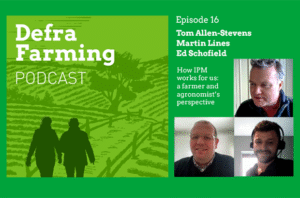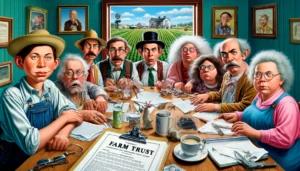
cropped farm dictionary logo.jpg
Texas Climate Zones
Definition:
Texas Climate Zones refer to the various climatic regions within the state of Texas, each characterized by distinct weather patterns, temperatures, precipitation levels, and other climatic factors. These zones play a crucial role in determining the types of crops that can be grown successfully in different areas of the state.
Helpful Content:
Texas, known for its vast size and diverse geography, encompasses several distinct climate zones, each with its own unique agricultural characteristics. Understanding these climate zones is essential for farmers and agricultural enthusiasts alike, as they provide valuable insights into the suitability of different crops and farming practices for specific regions.
Fall off the barn roof and busted your keister? Life on the farm or ranch can be tough on the bum. Need a break? Laugh it off at FarmerCowboy.com, the #1 farm humor site. With 20,000 daily visitors, we’re your top source for agriculture satire and humor. Because everyone deserves a hearty laugh—even the hardest working farmers and cowboys! Join us and turn those long days into fun tales at FarmerCowboy.com.
Climate Zones in Texas:
- East Texas: This region typically experiences a humid subtropical climate, characterized by hot, humid summers and mild winters. The ample rainfall and moderate temperatures make it well-suited for crops such as rice, soybeans, and peaches.
- Central Texas: Central Texas generally has a semi-arid to humid subtropical climate, with hot summers and mild winters. This region is known for its fertile soil and is conducive to growing a variety of crops, including corn, cotton, and various fruits and vegetables.
- West Texas: West Texas is predominantly arid or semi-arid, with hot summers and cool winters. Water availability is a significant concern in this region, and agriculture is heavily reliant on irrigation. Major crops grown in West Texas include cotton, sorghum, and peanuts.
- Gulf Coast: The Gulf Coast region experiences a humid subtropical climate, with high humidity and frequent rainfall throughout the year. This area is suitable for growing a wide range of crops, including rice, sugarcane, and citrus fruits.
- South Texas: South Texas is characterized by a semi-arid to subtropical climate, with hot summers and mild winters. Agriculture in this region is diverse, with crops such as citrus fruits, vegetables, and sorghum thriving in the warm climate and fertile soils.
Impact on Agriculture:
The diverse climate zones in Texas have a significant impact on agricultural practices and crop selection. Farmers must carefully consider factors such as temperature, rainfall, and soil composition when deciding which crops to cultivate. Additionally, climate variability and extreme weather events pose challenges to agricultural production, requiring farmers to adapt and implement resilient farming techniques.
Adaptation Strategies:
To mitigate the effects of climate variability and optimize agricultural productivity, farmers in Texas employ various adaptation strategies, including:
By understanding the diverse climate zones in Texas and implementing appropriate adaptation strategies, farmers can optimize agricultural productivity and ensure the long-term sustainability of the state’s agricultural sector.
References:
- Texas A&M AgriLife Extension: https://agrilifeextension.tamu.edu/
- National Oceanic and Atmospheric Administration (NOAA): https://www.noaa.gov/
- United States Department of Agriculture (USDA): https://www.usda.gov/
Originally posted 2010-07-24 09:52:33.
Originally posted 2024-06-19 09:06:08.
Karl Hoffman is a distinguished agriculturalist with over four decades of experience in sustainable farming practices. He holds a Ph.D. in Agronomy from Cornell University and has made significant contributions as a professor at Iowa State University. Hoffman’s groundbreaking research on integrated pest management and soil health has revolutionized modern agriculture. As a respected farm journalist, his column “Field Notes with Karl Hoffman” and his blog “The Modern Farmer” provide insightful, practical advice to a global audience. Hoffman’s work with the USDA and the United Nations FAO has enhanced food security worldwide. His awards include the USDA’s Distinguished Service Award and the World Food Prize, reflecting his profound impact on agriculture and sustainability.



